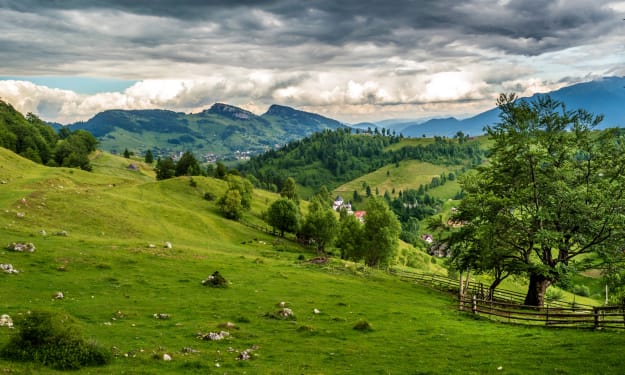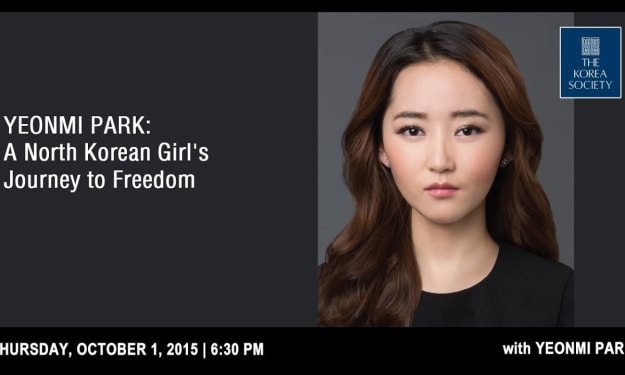
The price of bread was high, out of reach of common people. They were hungry. And they were angry; angry at the apathy of their rulers who continued to live a life of luxury and opulence while they were starving.
A group of women, probably unable to bear the suffering of their children, came out in the marketplace and began rioting for bread. Other women joined in and the number grew. Some men joined too. As their strength and confidence grew, they began thinking of a more permanent solution to the problem they were facing. After all, one cannot riot for bread every day, but one does get hungry every day
The permanent solution required change in the system, and change in the system required some sort of revolution. Revolution required weapons so they headed for the armory and looted guns. Armed, the women marched for about twenty kilometers outside the city where in a palace, their king was living the way kings do. They brought him from his luxurious palace back to the city and demanded that he do something about their plight.
The city was Paris, the year was 1789, and it was the beginning of the French Revolution. The beginning of the idea of the nation.
Four years later, in 1793, the king, Louis Sixteen, was arrested and executed.
The Idea of Nation
Kings had been dethroned and executed before. It was not the first time that people rose against their rulers. But there was something different this time. What happened then, set it apart from anything else from the past. It set in motion events that would change the world forever.
Earlier, when a king died, abdicated, or was dethroned, he was replaced by some other king, and things went on as before. But this time there were to be no more kings. The whole political system had to be changed. No more kings, no more divine authority. People refused to be subjects and wanted to be free citizens. It would take another hundred years or more for this idea to be fully realized. But with the French Revolution, it was clear that the days of the monarchy were numbered.
Social Background
The 18th century was the century of the scientific revolution in Europe. The advancement in science challenged the traditional beliefs and values, as well as the institutions which upheld these values, like the Church or the Monarchy. The scientific revolution also produced technologies in the fields of transportation, trade and commerce, and weaponry, which led to the prosperity of a group of people. The middle class was formed. It consisted of skilled, entrepreneurial individuals who were increasingly becoming influential and shaping society.
They were driven by the principles of hard work, thrift, and self-reliance. Kings and princes whose only merit in life was to be born into a certain family and who lived like parasites on the labor of the common people did not suit the spirit of the time. They were becoming irrelevant and undesirable.
So, they had to be dispensed with. The political system, monarchy, which had propped them up, had to be replaced. But the big question was, what would replace it? What kind of political system would take its place? What would be the form and shape of the new political system? And herein lay the birth of the idea of the nation.
The Shape of Nation
A nation was to be composed of a group of people who had a shared history, a common language, or common ethnicity. In other words, some marker of a collective identity that defined them as one people. Unlike the earlier princely state where kings and potentates decided the borders of the country through wars, marriage relations, etc., and common people had no say in that matter, now the borders of the nation-state would be decided by a common cultural identity.
But the problem was, there was no such thing as a common cultural identity. A society unless it is very primitive and secluded from the outside world is always composed of diverse groups of people who have their unique histories, languages, and ethnicities. In other words, there is never ‘one people’ occupying a single geographical space the size of a nation. At the time of the French Revolution, not even half of the people living in France spoke French. Similar conditions existed in other so-called nations of Europe where the idea of a nation-state originated first. All major cities were melting pots of different cultures and languages. Even in small towns and villages, different communities had been living together for centuries.
The realities on the ground complicated the idea of a nation having a singular, shared identity. So it had to be imagined. Selective and rigid versions of a national past were created and spread to the masses through school education, mass media, and other propaganda tools. Those who didn’t fit in the fossilized, fictionalized version of a common identity, became outsiders and suspects. They became a threat to the project of nation-building. They had to be assimilated, coerced into submission, or even physically exterminated.
Bloodbath and Mayhem
Since the birth of the nation, it has been just one long series of genocides and massacres which continue even today. The scourge that began in Europe and then spread to other parts of the world has wreaked havoc like nothing else in history before. The worst atrocities were committed in the name of the nation; two world wars, the Holocaust, the Armenian Genocide, the Rwandan genocide, the massacre of Hindus, Muslims, and Sikhs during the partition of India. The list can go on and on and on.
But despite this, the nation is the strongest marker of our collective identity today and will continue to be so for the foreseeable future. Whether we like it or not, we will have to deal with its fallouts. It would be just great if we learned from our past and try not to make the same mistakes again. But learning from the past? It is asking too much of ourselves. When did we ever do that?
The Future of Nation
What best we can hope to do is to change the form of the nation. We can step away from ‘ethnic, cultural nationalism’ and move towards ‘constitutional nationalism’ which is a more pluralistic, accommodating view of the nation. A nation does not belong to a group of people having one cultural identity (because there is no such thing), but to everyone who lives within its borders and abides by the law of the land. Irrespective of color, religion, or ethnicity people enjoy rights and fulfill the obligations that they collectively and democratically chose to take upon themselves.
Shorn of its tribalistic, parochial elements, the nation can be a positive force. It can provide us with a sense of belongingness and cohesion which is our fundamental need and sorely lacking in our own time. Perhaps Nelson Mandela summed up best when he said, ‘Part of building a new nation means building a spirit of tolerance, love, and respect amongst the people of this country.’
And if we have tolerance, love, and respect for the people of our own country, there is no reason why the same sentiment cannot be extended to peoples of other countries.





Comments
There are no comments for this story
Be the first to respond and start the conversation.